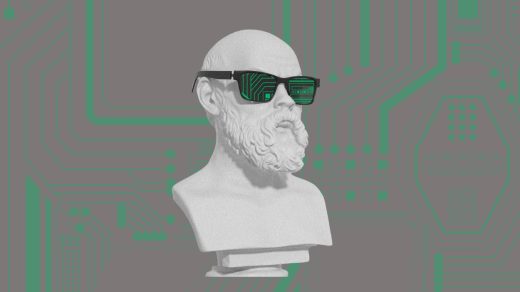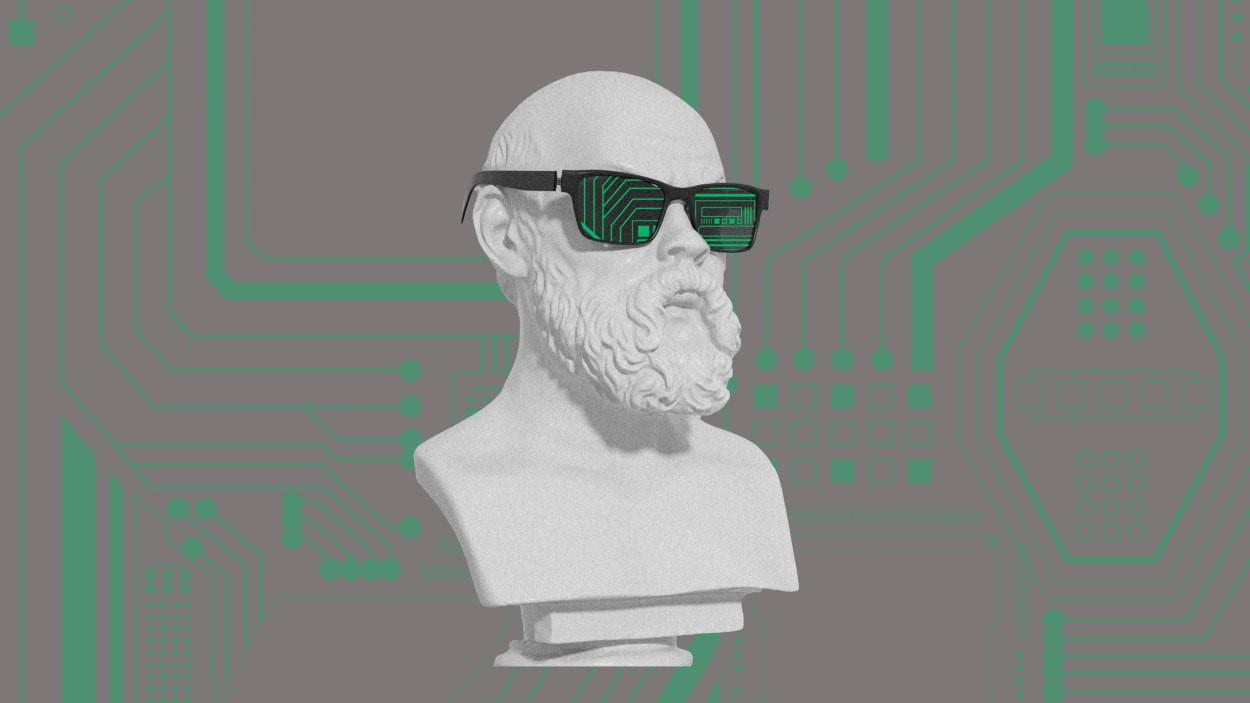Deloitte’s chief futurist warns against letting AI blind you to other priorities
By Chris Morris
Artificial intelligence is fascinating and may well turn out to be the next big thing in the business world, but it might not deserve as much of your company’s attention as it’s currently dominating.
That’s according to Deloitte’s annual Tech Trends report, which assesses what’s hot now and what’s on the horizon for enterprise technology. For the past 15 years, the study has looked down the road to help businesses prepare for the future. And, as you might expect, AI gets plenty of attention this year. But instead of hitching itself to the AI bandwagon, Deloitte cautions that the technology might be overshadowing other important issues.
“While Generative AI is the story of the hour . . . there’s a real risk in losing the plot,” Mike Bechtel, chief futurist at Deloitte, tells Fast Company. “Over-focusing on any one superhero technology tends to take the eye off the bigger picture.” That bigger picture includes, according to Bechtel, “human/computer interaction, compute, the business side of tech, cyber, [and] core modernization.” In other words, all the humdrum stuff that actually powers the world.
With this caveat in mind, the 2024 report still focuses heavily on AI, with some warnings for both skeptics and advocates.
AI is only going to be as good as the data it trains on, Bechtel says, which makes it essential that companies ensure their data is architected properly. The old adage of “garbage in, garbage out” isn’t strong enough in this burgeoning era.
“We’re entering a new era of ‘garbage in, garbage squared’,” he says. “Because AI, of all sorts, is a force multiplier—a funhouse mirror, of sorts—for whatever we humans put into it. If you feed it biased data, poorly tuned data, etc., you end up with weapons in the hands of children.”
The Deloitte report notes that many people fall into one of two camps: They’re either too eager to integrate the tech, or not excited enough about its potential benefits. Some are so skeptical that they’re unwilling to experiment with the technology, putting themselves behind the competition. Others run “whole hog to the tech like six year olds mobbing a soccer ball,” Bechtel says, utilizing it just because it’s buzzy and not because it solves a specific issue the company is facing.
“Technology comes last,” says Bechtel. “Leading organizations are saying ‘where are our strategic ambitions?’ . . . and, then, ‘how do we use this tool [to achieve them]?’”
Despite the cautions, the 2024 Tech Trends report is still quite bullish on AI. It simply cautions we’re still very early in the game, so it’s hard to say what parts of the business world will utilize it the most (and most intelligently).
“We’re pretty sure it’s going to be seismic,” the report reads. “We just don’t know exactly where the ground will shift the most.”
AR/VR
The report also dedicates a good bit of attention to the worlds of spatial computing, suggesting that both virtual and augmented reality are likely to become a much more critical part of the workplace in the coming years.
This, of course, isn’t the first time either technology has been hyped—and neither has ever lived up to what its evangelists have envisioned. A few things have changed this time, though, notes Deloitte. Network and processor speeds have steadily increased—and devices’ battery life is now substantially longer.
Bechtel adds that AR and VR companies are reaching beyond gamers and people who spend their days in front of keyboards, opening up new workplace fields that give companies an opportunity to grow.
“Techs, specifically interface techs, have a tendency to graduate from tech to toy to tool,” he says. “For people who work with a keyboard or over Zoom or Teams, the experiential delta might be meaningful, but not transformative, but for people on an oil rig or an assembly shot, this will be the opportunity for them, for the first time, to overlay digital information into their physical environments. . . . This feels increasingly likely not because it’s shiny, but because it will be simple.”
Apple’s forthcoming debut of the Vision Pro will also likely increase interest in the field, making this technology more mainstream than ever. Companies, however, will need to prepare for any privacy issues that come with this tech, as well as cybersecurity ones.
Bad actors
Security is another key theme in the Deloitte report. As new technologies become more integrated into business, cybercriminals will attempt to utilize them to gain unauthorized access. And we’re already seeing that with deepfakes and hackers using those as phishing tools.
“Reality itself is coming under attack. We literally can’t believe our eyes [or ears] anymore,” says Bechtel. “So, what companies are doing is they’re fighting fire with fire. I can’t trust myself, but I can trust my math to suss out [the bad actors’] math.”
That’s especially important, because once something goes viral, whether it’s accurate or not, the public’s opinion has been changed.
It’s the next step in the endless cat and mouse game between hackers and IT divisions. But it’s one that’s likely to be a lot more important in the years to come as it becomes even harder to separate truth from fiction.
(17)



